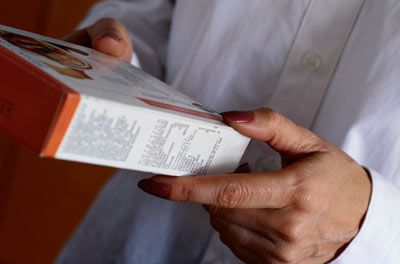
The U.S. government ban on artificial trans fats went into effect on June 18, 2018 — a major food overhaul that's had food companies developing and phasing in substitutes for three years. Trans fats lower HDL (good) cholesterol and raise LDL (bad) cholesterol, as well as increasing inflammation and the risk of developing blood clots — all of which can lead to heart disease, strokes and diabetes. Health experts say trans fats are worse for the heart than saturated fats. In 2015, the Food and Drug Administration decided that trans fats were no longer safe, imposing a three-year time limit on their removal, and the World Health Organization just launched an effort to ban trans fats globally by 2023.
Artificial trans fats, commonly known as partially hydrogenated oils, were developed to replace butter. They're less expensive, more stable and less likely to go rancid than natural fats. Trans fats have been used to fry fast and frozen foods, and are also used in cakes, refrigerated doughs, microwave popcorn, non-dairy creamers, baking mixes, frostings, margarine and shortening.
Advertisement
Even though food companies had three years to come up with replacements for trans fats, and 98 percent of them have been removed from our food, not all trans fats are gone.
First, there are natural trans fats, which are found in beef, lamb and dairy products like butter. These foods contain small amounts of trans fats, and scientists are still researching whether natural trans fats are as bad for you as man-made ones.
Second, even though the ban went into effect this week, there are still residual products on shelves. It'll take time for those products to be restocked with their trans-fat-free versions.
And finally, there are a few substitutes still in the works to replace some of the trans fats used in commercial foods. Food industry advocates petitioned the government for more time to create replacements for some types of colorings, flavorings and non-stick sprays that use trans fats. The government granted a one-year extension on those, but all must be removed by July 18, 2019.
Replacements for trans fats include vegetable oils like canola, corn, soy and olive, and plant fibers and oats. But some substitutes are saturated fats such as butter, lard, tallow (beef fat) and tropical fats such as palm oil (which is a concern for environmentalists — producing palm oil contributes to deforestation and pollution). But saturated fat isn't good for your heart either and can lead to artery disease and heart problems. The best way to know what's in your food is to flip the package and read the fine print.
Advertisement


